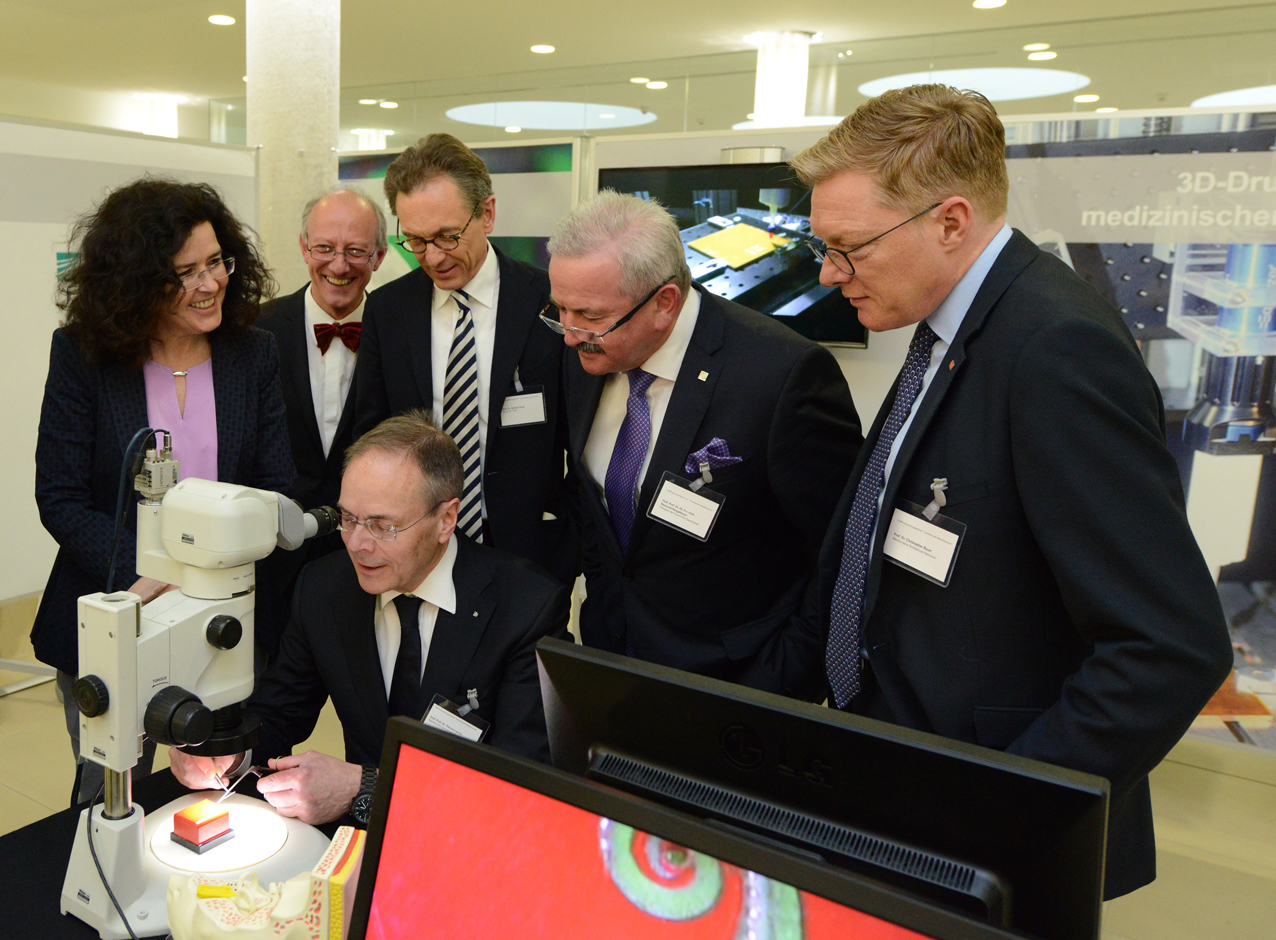Cooperation in Hannover to promote fast transfer of research results into clinical trials
New High-Performance Center Translational Medical Engineering
(Hannover) Together with representatives from industry, government and academia, Dr. Gabriele Heinen-Kljajić, Minister for Science and Culture of Lower Saxony, and Prof. Reimund Neugebauer, President of the Fraunhofer-Gesellschaft inaugurated the High-Performance Center Translational Biomedical Engineering in Hannover on April 25.

The new Center is aimed at bringing medical devices from the lab into phase I of clinical development. The focus is on active implants – i.e. electrical stimulation systems such as cochlear and retinal implants – and technological solutions for inhaled drug delivery. The latter are systematically developed towards smart drug/device combination products. The Center is funded by the Lower Saxony government and the Fraunhofer-Gesellschaft. “Be it research on and development of implants, regenerative or personalized medicine – we want to contribute to overcoming the difficult step of transferring medical research results into clinical application, so that patients can benefit from novel products and methods. The new High-Performance Center Translational Biomedical Engineering provides a valuable link between research institutions and industry. It further strengthens the close network of research in the life sciences in Hannover,” said Gabriele Heinen-Kljajić, Minister for Science and Culture of Lower Saxony.
“In this Center, we will assist researchers, companies and entrepreneurs from the very phase of development. Dedicated manufacturing processes, for example, commonly represent substantial economic hurdles for small and medium-sized enterprises. Furthermore, medical devices equally have to go through quality assurance and risk assessment processes, before they can progress to clinical trials. We guide through the sophisticated processes of bringing devices from basic research to clinical application – we help them get through a bottleneck of translation, so to speak,” said Prof. Theodor Doll, head of the Center. Doll is holding a professorship instituted at the Hannover Medical School in collaboration with Fraunhofer ITEM. It directly connects the research done in the clusters of excellence REBIRTH and “Hearing4all” in Hannover and in the Lower Saxony consortium “Biofabrication for NIFE” with the translation expertise of Fraunhofer ITEM.
“Within a very short time, the High-Performance Centers of the Fraunhofer-Gesellschaft have proven to excellently support cooperation with universities and industry. They bring together industry, science, and applied research as a mediator in a kind of one-stop shop. The aim is to broadly promote research and education, training and continuing professional development, career opportunities for both young and senior scientists, and the transfer from lab to fab. The High-Performance Centers shall be established as infrastructure for this transfer,” explained Prof. Reimund Neugebauer, President of the Fraunhofer-Gesellschaft. “The new Translational Biomedical Engineering Center provides an optimal opportunity to step into a top position in innovative product development in the medical sector. Together with our partners, we can provide decisive impetus for future innovations to industry, SMEs and start-ups in the medical sector.”
The current Medical Device Directive will soon be replaced by the much more stringent EU-wide Medical Device Regulation. “The Center can optimally assist companies and researchers in coping with the increased requirements,” says Doll.
 Fraunhofer Institute for Toxicology and Experimental Medicine
Fraunhofer Institute for Toxicology and Experimental Medicine